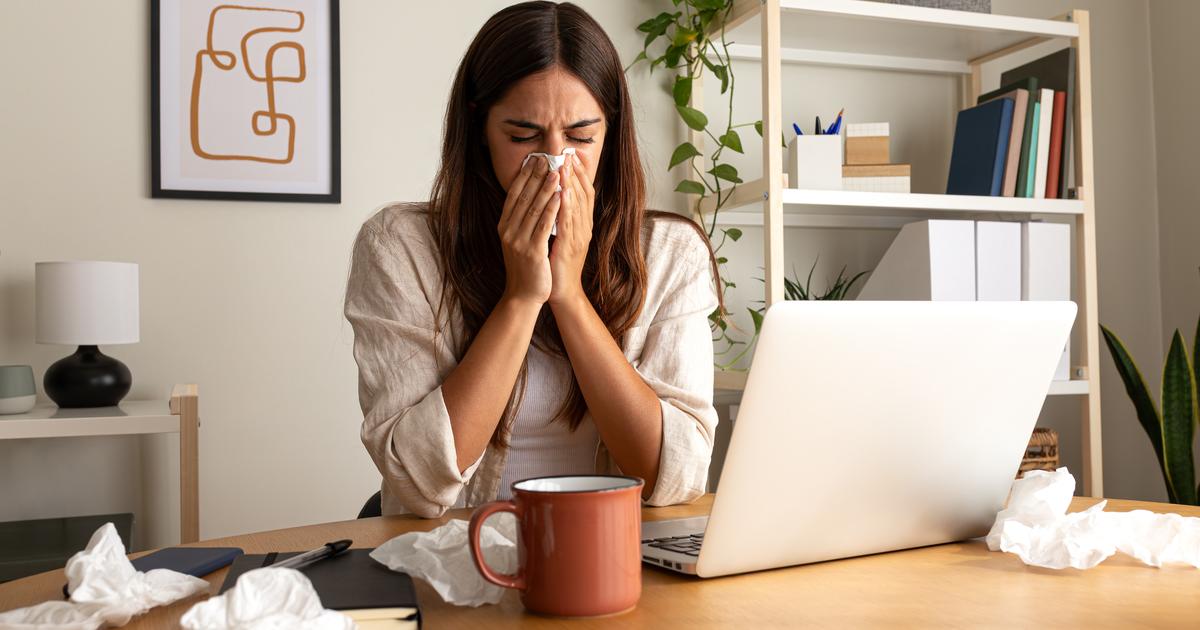Good news, but also… increased vigilance.
In his speech this Wednesday noon, Jean Castex not only announced the end of the compulsory mask outdoors (except in particular places) from this Thursday and the lifting of the curfew from Sunday.
"We are going to strengthen our surveillance and prevention actions" [of the Delta variant, known as "Indian"], also assured the Prime Minister.
This, between 40 and 60% more transmissible, raises the risk of a resumption of the epidemic, at least at the local level.
The French government's strategy is based on several pillars.
To fight against a variant of SARS-CoV-2, it is still necessary to know to what extent it is spread.
Two complementary techniques are used: screening and sequencing.
The first consists in tracking down the “mutations” of the virus, some of them being characteristic of a particular variant.
The method has just evolved, which will make it easier to identify Delta.
According to the first data communicated Tuesday by Olivier Véran, this represents "2 to 4%" of the positive tests screened.
"We can expect that Delta will become the majority in the long term, [but] the timing is impossible to determine," said Sibylle Bernard-Stoecklin, of the infectious diseases department of Public Health France.
30% of new cases in the Landes
2 to 4%, this is much more than the rates recorded during the last Flash sequencing surveys, which are finer because they consist in analyzing the entire genome of a virus.
But they are only performed every two weeks, and it takes at least three more weeks to have consolidated results.
The two techniques have the same goal, summarized by Jean Castex: "to track down as effectively as possible [Delta] and take all the epidemiological measures that its detection makes necessary".
"As soon as a case is discovered, the Tracer-Isolate-Support strategy must be particularly reactive," urges the Scientific Council, for example, in an opinion dated May 24.
Read also Covid-19: screening, sequencing ... understand everything in the hunt for variants (when you don't know anything about it)
In the Landes, where this variant is the source of around 30% of contaminations, contact-tracing as well as screening have been stepped up. And good news: the incidence rate is still falling there… even if this does not bode well for the future. "This variant eats the others, in quotes", illustrated Monday Didier Couteaud, departmental delegate of the Regional Health Agency (ARS) Nouvelle-Aquitaine.
The Prime Minister also indicated that Emmanuel Macron had "asked that border controls be further strengthened and adapted, in particular at airports and ports". Delta now circulates in nearly 80 states, including the United States and Russia. The rules in force for coming to France depend on the country of origin, whether it is on the green, orange or red list. Unvaccinated travelers who come from orange territory are not subject to a mandatory ten-day quarantine controlled by the police, for example.
The UK belongs to this list.
And if it was not mentioned, it is in particular towards him that the eyes are turned.
Because the Delta variant is at the origin of an outbreak of contaminations across the Channel, with new daily cases which climb by 30 to 60% per week.
This development has already resulted in the postponement of the last stage of deconfinement in England from June 21 to July 19.
"Save time to vaccinate"
The goal is to avoid a too strong "wave" of hospitalizations and to vaccinate more by then.
More and more studies suggest it: two doses are very effective (more than 90%) against hospitalizations and against symptomatic forms linked to the Delta variant, especially with Pfizer compared to AstraZeneca.
On the other hand, with a single injection, the protection against the appearance of symptoms would drop to around 30%, according to initial data from Public Health England.
According to BBC calculations, one more month would increase from 57% to 76% of the fully vaccinated adult population.
Read also End of deconfinement shifted: how England got there
"The English situation shows that the two doses must be given as quickly as possible in France", points out the researcher in immuno-oncology Eric Billy, very satisfied with the new interval of 21 to 49 days allowing to receive his second injection of Pfizer or Moderna. "Effectively mastering the chains of transmission linked to a new worrying variant saves time for vaccination", supports Florence Débarre, CNRS researcher in evolutionary biology. As of January 12, the Scientific Council had drafted an opinion under the title which remains more relevant than ever: "Between vaccines and variants: a race against time".











/cloudfront-eu-central-1.images.arcpublishing.com/prisa/S7ERVSCT4FUVX6R7TUVBDNTH5Y.jpg)



